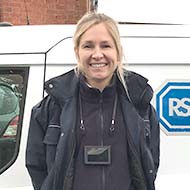
The RSPCA began the project in response to the pandemic.
The RSPCA is asking the public for pet food donations as its food bank project expands into North East England.
Beginning in Lancashire during lockdown, as a response to the large number of pet owners with financial difficulties that the RSPCA was seeing, the project links up the RSPCA with food banks around the country to provide the food banks with pet food.
Rolled out across 35 different food banks across Lancashire, Cheshire, Merseyside, West Yorkshire, South Yorkshire, Northumbria and Greater Manchester, the project is now being rolled out in the North East of England.
The food banks who have signed up for the project are Key 2 Life Food Bank (South Shields), Washington Community Food Project, Walker and District Food Bank and Newcastle West End Food Bank.
RSPCA animal rescue officer (ARO) Heather Wade, who is coordinating the effort across South Tyneside and Newcastle, commented on the project: “We’ve seen pets become a real source of comfort to people during the pandemic and it’s fantastic to see those strong bonds between owners and their animals.
“However, the pandemic has put a strain on people’s finances and we’re seeing a lot of people experience tough times at the moment.
“The last thing we want is for a loving owner to have to give up their companion and so we set up the scheme in the hope that we could provide as much pet food as possible and keep families and their pets together.”
The charity is asking for donations of pet food to assist the project, and members of the public are asked to use these drop-off points and specify that the donation is for the project:
• RSPCA Felledge Animal Centre, Waldridge Lane, DH2 3BF
• RSPCA Newcastle and North Northumberland Branch Shop, 200 Shields Road, Byker, Newcastle Upon Tyne, NE6 1DU
• RSPCA Newcastle and North Northumberland Branch Shop, 186 Whitley Road, Whitley Bay, NE26 2TA
Heather added: “We’re so pleased to be able to help in this way and are so grateful for any donations we receive to help this project.”
Image (C) RSPCA



 The Veterinary Medicines Directorate (VMD) is inviting applications from veterinary students to attend a one-week extramural studies (EMS) placement in July 2026.
The Veterinary Medicines Directorate (VMD) is inviting applications from veterinary students to attend a one-week extramural studies (EMS) placement in July 2026.